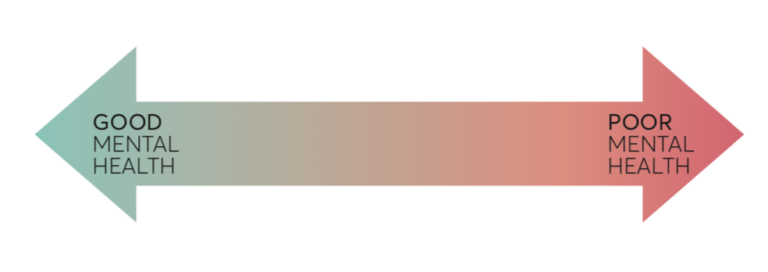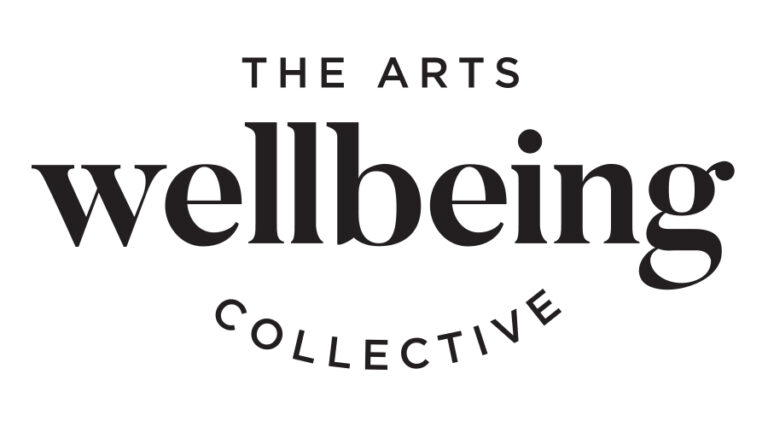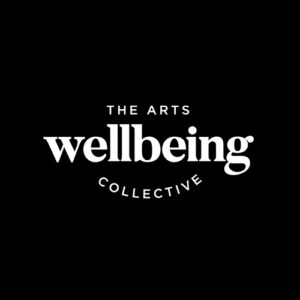
The pressures and practicalities of touring may increase your vulnerability and susceptibility to mental health problems, or exacerbate an existing condition. Be aware of your own mental health, and the mental health of your tour mates. If you’ve noticed that someone in your cast or crew is not quite their ‘usual self’, act on it and start a conversation.
The phrase ‘mental health’ is often misunderstood. You might hear it used as a substitute for mental health conditions, such as depression and anxiety. According to the World Health Organization, mental health is “a state of well-being in which every individual realises their own potential, can cope with the normal stresses of life, can work productively and fruitfully, and is able to make a contribution to their community”.
Mental health is not merely the absence of a mental health condition, but about being mentally healthy in the way we think, feel and develop relationships. It can be helpful to think of mental health as being on a continuum:

Your mental health is not fixed. It is normal to move up and down the continuum throughout the course of your life, the tour, or even the day. You might be feeling pretty good after a fun travel day, but then get really stressed out after a tight bump in. This is a normal response to a situation that most people would find stressful, and the stress resolves when the situation resolves. Something becomes a mental health problem when the feelings are of such long duration and high intensity that they start to impact on your ability to function in everyday life. Two of the most common mental health problems are anxiety disorders and depressive disorders.
We’ve all felt anxious at one time or another. Anxiety is a common response to a situation where we feel under pressure. An anxiety disorder is more severe, longer lasting, and impacts on your everyday functioning.
Signs and symptoms include:
The sooner people with an anxiety disorder get support, the quicker their recovery journey may be. If you spot signs or symptoms of anxiety in yourself or someone else on tour, act quickly and seek help. Even on tour, a local GP is a good first port of call.
While we all feel sad, moody or low from time to time, depression is more than just a low mood – it’s a serious condition that affects your physical and mental health.
Key indicators:
Other signs and symptoms may include:
Depression is serious. If you spot signs or symptoms emerging in yourself or someone else on tour, professional help is needed. Visit a local GP, but if someone does become significantly unwell, they should go to a hospital emergency room.
Read Cast and Crew – Looking After Each Other On Tour: Part 2
Resources:
Going On Tour? Tips For Your Mental Health



The Arts Wellbeing Collective is an Arts Centre Melbourne initiative that comprises a consortium of arts and cultural organisations whose shared vision is to effect better mental health and wellbeing for performing arts workers. Our objectives are to: - Improve support services for performing arts workers - Collate and share information - Effect industry cultural change - Improve support networks within and between arts organisations. Our guiding principles are: - Prevention focused, promoting positive mental health and wellbeing, and raising awareness of mental health, mental health problems and the value of early intervention. - Working in partnership, ensuring a variety of partnerships state-wide and across the industry – collaboration is core to the Arts Wellbeing Collective and vital to success. - Creating systems level change, through seeking to understand and address systems, cultures and traditions that contribute to poor mental health and wellbeing in the performing arts. - Long-term thinking, prioritising resources and initiatives that have capacity for long-lasting impact, scalability and transferability. - Knowledge creation and dissemination, working with experts and industry leaders to find, share, create and translate the best available information, tailored for creative contexts. - Encouraging innovation, Arts Centre Melbourne is always learning – we do not have all the answers. We will test, trial, evaluate, and share useful findings with energy and authenticity, and continue to be rigorously planned, strategically responsive and thoughtfully adaptable.
Read Full Profile© 2021 TheatreArtLife. All rights reserved.

Thank you so much for reading, but you have now reached your free article limit for this month.
Our contributors are currently writing more articles for you to enjoy.
To keep reading, all you have to do is become a subscriber and then you can read unlimited articles anytime.
Your investment will help us continue to ignite connections across the globe in live entertainment and build this community for industry professionals.